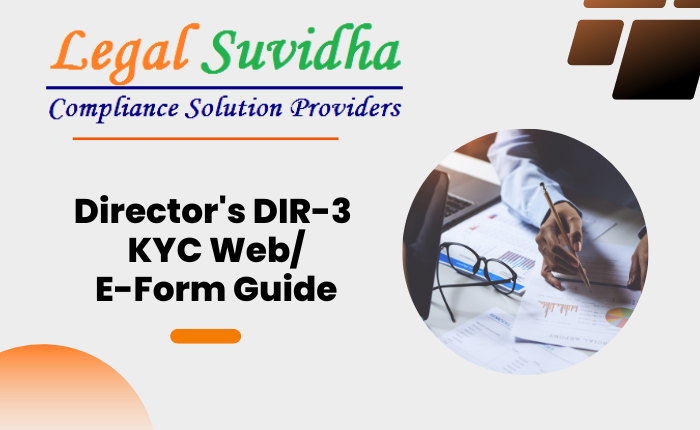In India, there’s a rule called “Know Your Customer” (KYC) for company directors. It became official on July 10, 2018. Before this rule, directors didn’t have to update their information every year. But now, they must fill out a form called DIR-3 KYC to follow the law. This isn’t just paperwork; it’s crucial to keep directors and their companies in good standing. Not doing it can cause problems like deactivating their Director Identification Number (DIN).
Who Needs to Do DIR-3 KYC?
According to the amendment, directors who were assigned a DIN on or before the end of each financial year (March 31st) must file the DIR-3 KYC form if their DIN status is ‘approved.’ This mandate aims to ensure that director information remains current and is essential for maintaining an active status for both directors and their respective companies.
What Is the Deadline?
Initially, the due date for filing was April 30th of the immediate next financial year. However, subsequent amendments in 2019 altered the deadline to June 30th and later to September 30th of the immediate next financial year. Here are the relevant details:
- Under the Companies (Appointment and Qualification of Directors) Fourth Amendment Rules, 2018, the due date to file DIR-3 KYC was on or before April 30th of the immediate next financial year.
- Following the Companies (Appointment and Qualification of Directors) Amendment Rules, 2019, dated April 30, 2019, the due date for filing DIR-3 KYC was changed to “on or before June 30th of the immediate next financial year.”
- After the Companies (Appointment and Qualification of Directors) Third Amendment Rules, 2019, dated July 25, 2019, the due date for filing DIR-3 KYC was amended to “on or before September 30th of the immediate next financial year.”
What Documents Do You Need?
To fill out DIR-3 KYC, you need some important documents:
1. PAN (Permanent Account Number)
2. Voter ID
3. Passport
4. Driver’s License
5. Aadhaar Card
6. Address proof
7. Mobile number and email address
When Do You Have to File DIR-3 KYC?
You need to do it in a few situations:
1. After your company is set up in the next financial year, use the DIR-3 KYC e-form.
2. If you filled out the form last year, you have to do it every year.
3. If you’re a new director with a DIN in the next financial year, file the DIR-3 KYC e-form.
4. If your contact information changes, like your phone number or email, you have to update the DIR-3 KYC e-form.
What Happens if You Miss the Deadline?
If you don’t file by September 30th, your DIN will be marked as ‘Deactivated due to Non-filing of DIR-3 KYC.’ That means you can’t do any paperwork with your DIN until you pay a late fee of Rs. 5,000/- to reactivate it.
In Conclusion
Filling out the DIR-3 KYC form is more than just following the rules; it’s essential for directors and companies. Knowing the deadlines, having the right documents, and staying compliant can save you from trouble. Directors should follow these guidelines to keep things running smoothly and follow Indian laws. Not doing it might stop you from doing your job as a director.
If You have any queries then connect with us at [email protected] or [email protected] & Contact us & stay updated with our latest blogs & articles










